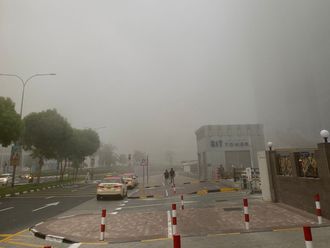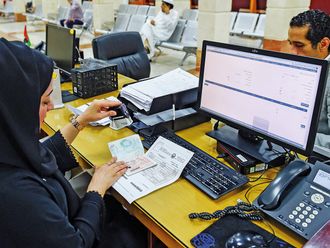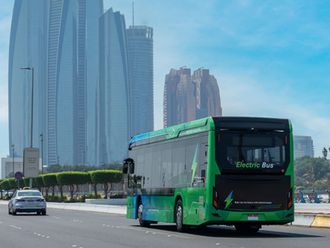Abu Dhabi: The African continent could soon become the destination of major renewable energy investment, a senior industry official said in the capital on Tuesday.
This was reflected in a council meeting of the International Renewable Energy Agency (Irena), which saw great interest from African nations to adopt clean energy resources, said Adnan Z Ameen, director general at the Irena.
There has also been enthusiasm for Irena’s activities from other regions, and in the development of renewables that make up 19 per cent of the global energy mix are present. After expressing their support at the third Irena General Assembly in January 2013, China deposited papers two days ago, and will undergo processes within the next four months to become a full member of Irena. In addition, there have been talks to discuss Brazil’s membership at the agency, Ameen said.
He was speaking after the conclusion of a two-day Irena council meeting in Abu Dhabi.
Ameen also referred to the UAE’ leadership in adopting clean energy, which has sparked major investments in the Middle East and North Africa region. One example is the Saudi Arabia’s King Abdullah City for Atomic and Renewable Energy, which is set to become one of the biggest global renewable energy investors, with $120 billion (Dh440.7 billion) set to generate 47 gigawatts (GW) by 2032.
With regard to Africa, Ameen said renewable energy would play a crucial role in the continent’s future development.
“After much stagnation, we have had close to a decade of sustained economic growth in Africa of up to 7 per cent per annum.
“There is a growing middle class, and increasing production and consumption, in addition to population growth, urbanisation and energy demand growth. The use of fossil fuels is however exposing these economies to energy insecurity and price volatility,” Ameen said.
“There are constraints in availability of resources, and energy needed to fuel development. So many African nations are now facing a major choice between using the conventional energy polluting model or the resource potential in renewable energy to support their growth and enable economic prosperity,” he added.
Irena statistics show that currently, Southern Africa generates more than 80 per cent of its electricity from coal and will require new sources as demand growth by over 4 per cent per year. East Africa generates 60 per cent of its electricity from gas and faces nearly 6 per cent yearly demand growth.
The prospects of developing an East and South Africa Clean Energy Corridor therefore garnered great support from member states’ experts, utility managers, regulators, private sector actors, government officials and financing institutions.
According to the Irena’s Global Atlas, there is however huge geothermal potential in Ethiopia, Kenya and Tanzania, and using this alone could power Africa, Ameen said. There are also solar, wind and hydro resources, as well as a big possibility to use biomass.
“We expect that this initiative will go to the assembly at the ministerial levels, where ministers from the African countries will endorse action agenda for the transformation of Eastern Southern Africa to a clean energy corridor.
“The challenge lies in how to ensure investment links with demand centres in Africa. But the prospect has sparked so much enthusiasm that other regions in Africa are considering the establishment of similar clean energy corridors,” the official added.
Meanwhile, the two-day council meeting in Abu Dhabi was itself attended by 96 countries, with 21 nations serving as members of the council and others attending as observers. Ameen said the level of interest had been “unprecedented”.
“We hope to maintain the trajectory of budgetary growth at Irena, which has been about 15 to 20 per cent a year in the past few years.
“After two years of operation on annual budgets, we are now moving to a biannual budget. There has also been strong support from the member states to strengthen the financial base of the Irena, so we are also looking into a significant resource growth of about 15 per cent,” the director general said.











